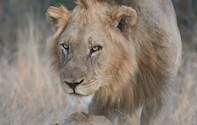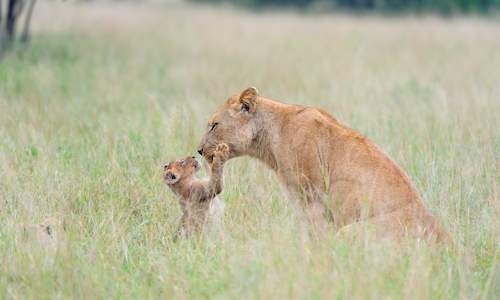
The sayings "if it pays, it stays" and "wildlife must pay its way" have been used to justify a number of activities in the wildlife conservation industry, ranging from trophy hunting to the commercialisation process in South Africa's national parks, but now lion researcher Kate Nicholls has a different take on this sentiment.
To make trophy hunting of lions sustainable, she argues, long-term studies of the lions are needed, and the researchers carrying out the studies should help the lions 'pay their way' through the creation of primary schools in the study area.
Nicholls has only recently begun to change her long-held anti-hunting stance, partly after attending January's multi-national workshop that discussed the future of eastern and southern Africa's lions. The workshop found sustainable trophy hunting to be one of the major factors that would conserve lions and their habitats in future, and that revenue generated from damage-causing lions should be fed back to the communities directly affected by the animals.
Nicholls believes that long-term regional studies are needed to determine which lions are appropriate targets for trophy hunters, but that part of their research programme should be to establish primary schools, especially in areas where there is a lot of human-lion conflict. She says that all mothers want their children to be educated, and by creating schools "you gather the whole community in if you offer children education".
Nicholls, who has been studying lions in the Okavango Delta for many years with her partner Pieter Kat, is the mother of five children. She bush-schooled her children, devising an academic programme for them, and they have gone on to study at some of the world's finest universities. "I know that you can achieve a high standard [in the bush]".
She is planning on setting up a foundation that would see this dream of environment (and lion) friendly primary schools being established in rural communities. And while the researchers are creating schools to help pupils fit into the western world, Nicholls hopes that the researchers are learning as much as possible from the wealth of indigenous knowledge found in rural communities.

 Lion Conservation in Kruger National Park is one of the park's many efforts to protect the fierce lion of Africa - the cunning hunter, the f...
Lion Conservation in Kruger National Park is one of the park's many efforts to protect the fierce lion of Africa - the cunning hunter, the f...